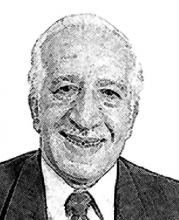You are here
What figures suggest
Nov 01,2014 - Last updated at Nov 01,2014
A survey of Jordanian public opinion was conducted last September by an American think tank, the Washington Institute for Near East Policy Studies, which indicated that 8 per cent of Jordanians have a favourable view of the Islamic State (IS).
I believe the figure needs to be placed in context.
The respondents were not asked to explain the reasons that made them look favourably to Baghdadi’s caliphate in Mosul. It is true that he pays Jordanians who join him $1,500 monthly, which is four times the average salary of a government employee here.
It is also true that newcomers are paid $30,000 upon arrival to settle debts and family obligations back home.
But these financial temptations cannot be the main motivations for that rate of approval for Baghdadi’s caliphate.
The reason for the support was the political marginalisation of the Sunnis in Iraq, the fact that their elite was accused of being former Baath Party members, pro-Saddam or enemies of the Shiite regime of Nouri Al Maliki.
Arbitrary arrests and systematic persecution by organised Badr militias made the average secular Sunnis express loyalty to IS, the only power capable of protecting their daughters from humiliation in jails where they used to be subjected to all types of torture in order to lead to the hiding places of their brothers or fathers.
Jordanians heard from their Iraqi Anbari visitors horrid stories about their suffering, and it was a normal reaction to sympathise with them.
Those 8 per cent of Jordanians expressed support for the restoration of the dignity to Sunnis, and not for the wanton slaying of prisoners or enslavement of Yazidi girls.
Baghdadi’s caliphate is more like a pyramid, with more than one façade. The façade of terror cannot be condoned by people here. But the protection of Sunni interests is another façade that made many Sunnis in Turkey and North Africa express support.
That image of IS as a Sunni protector in a hostile Shiite milieu has been confirmed by another public opinion survey conducted by the University of Jordan’s Centre for Strategic Studies, where one of its findings is that 62 per cent of Jordanians do not consider IS a terrorist organisation.
The fighters were viewed a year ago as a group who volunteered to help Syrian Sunnis against the massacres by Alawite army troops of Sunni villages in Deraa and Hama.
It was the sectarian aspect of the conflict that made nearly 2,000 Jordanians join Al Nusra front or IS. Many of those would not have gone to Syria had they not been pushed by the soaring rate of unemployment, the rapid increase of food prices, the gradual decline in political participation or the deeply ingrained feeling of being worthless from a governmental perspective.
In a culture that glorifies the concept of martyrdom, those 2,000 Jordanians know that their families will later rejoice in what they consider “heroic” operations.












